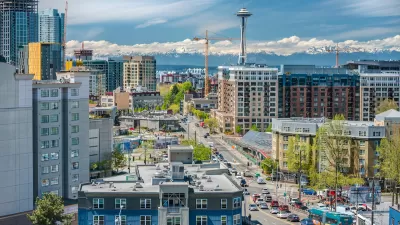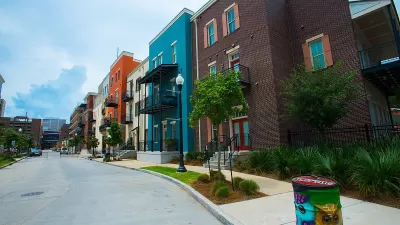The District could tighten the rules for a pandemic-era housing assistance program and speed up the eviction process.

The Washington. D.C. Council could end pandemic-era renter protections and roll back assistance programs, report Meagan Flynn and Aaron Wiener in The Washington Post.
The proposal from Council Chairman Phil Mendelson comes as District affordable housing providers face millions in unpaid rent, high interest rates, and rising insurance costs — with the blame falling largely on unpaid rent — in what Jon Banister called an ‘existential crisis.’ “At some properties, as many as 40 percent of tenants are behind on their rent, leaving the landlords in a financial hole, building owners say.” Mayor Bowser proposed cuts to the program in April, calling for a return to “everybody paying their rent and utilities.”
The proposed legislation would create stricter rules around documentation for Emergency Rental Assistance Program (ERAP) recipients and new standards that could speed up eviction proceedings. “Under the proposal, judges could only pause an eviction case if a tenant shows evidence that rental assistance from the District could help them fully resolve their unpaid rent or that the tenant and landlord have agreed to a payment plan to resolve the remaining balance.”
Council Member Robert C. White Jr., chairman of the council’s housing committee, expressed concern about the deep need for affordable housing, but ultimately supported Mendelson’s bill, noting that “the data that we’ve gotten on nonpayment on rent and the impact that that’s having.”
FULL STORY: D.C. Council aims to tighten housing policies as unpaid rent climbs

Trump Administration Could Effectively End Housing Voucher Program
Federal officials are eyeing major cuts to the Section 8 program that helps millions of low-income households pay rent.

Planetizen Federal Action Tracker
A weekly monitor of how Trump’s orders and actions are impacting planners and planning in America.

Ken Jennings Launches Transit Web Series
The Jeopardy champ wants you to ride public transit.

Washington Legislature Passes Rent Increase Cap
A bill that caps rent increases at 7 percent plus inflation is headed to the governor’s desk.

From Planning to Action: How LA County Is Rethinking Climate Resilience
Chief Sustainability Officer Rita Kampalath outlines the County’s shift from planning to implementation in its climate resilience efforts, emphasizing cross-departmental coordination, updated recovery strategies, and the need for flexible funding.

New Mexico Aging Department Commits to Helping Seniors Age ‘In Place’ and ‘Autonomously’ in New Draft Plan
As New Mexico’s population of seniors continues to grow, the state’s aging department is proposing expanded initiatives to help seniors maintain their autonomy while also supporting family caregivers.
Urban Design for Planners 1: Software Tools
This six-course series explores essential urban design concepts using open source software and equips planners with the tools they need to participate fully in the urban design process.
Planning for Universal Design
Learn the tools for implementing Universal Design in planning regulations.
Heyer Gruel & Associates PA
Ada County Highway District
Institute for Housing and Urban Development Studies (IHS)
City of Grandview
Harvard GSD Executive Education
Toledo-Lucas County Plan Commissions
Salt Lake City
NYU Wagner Graduate School of Public Service





























